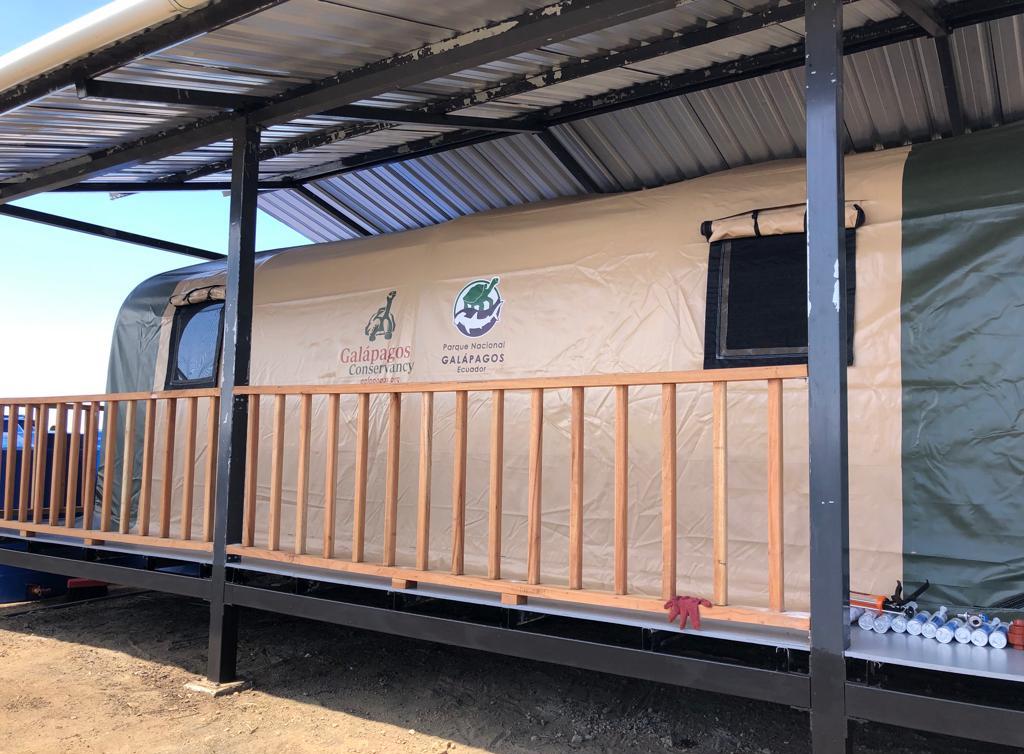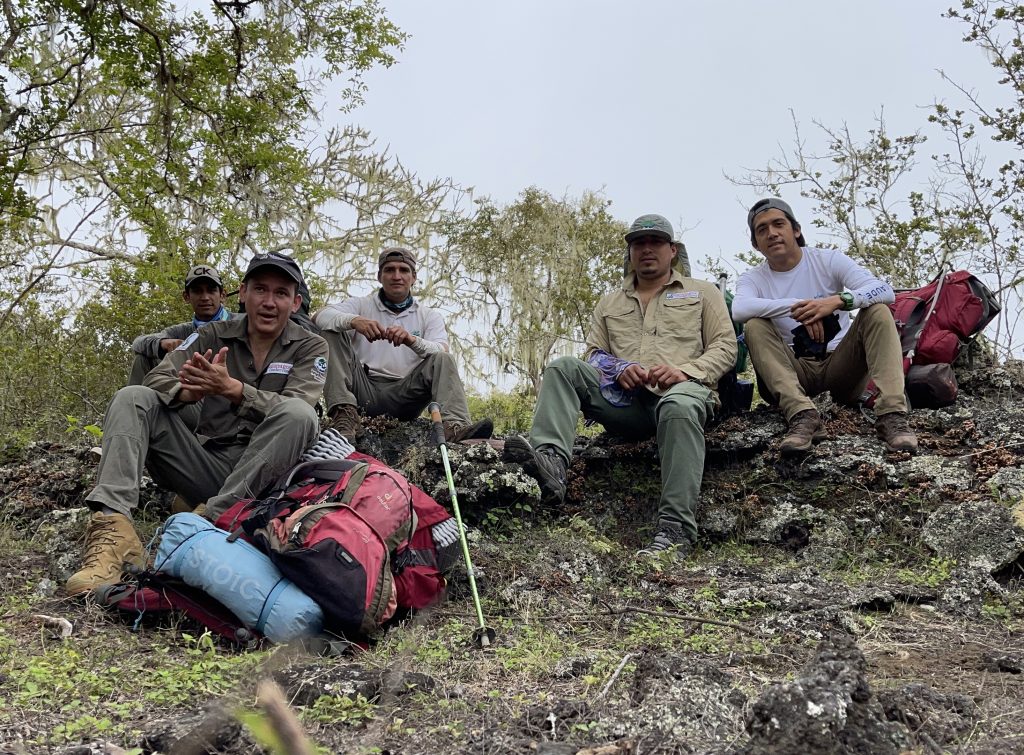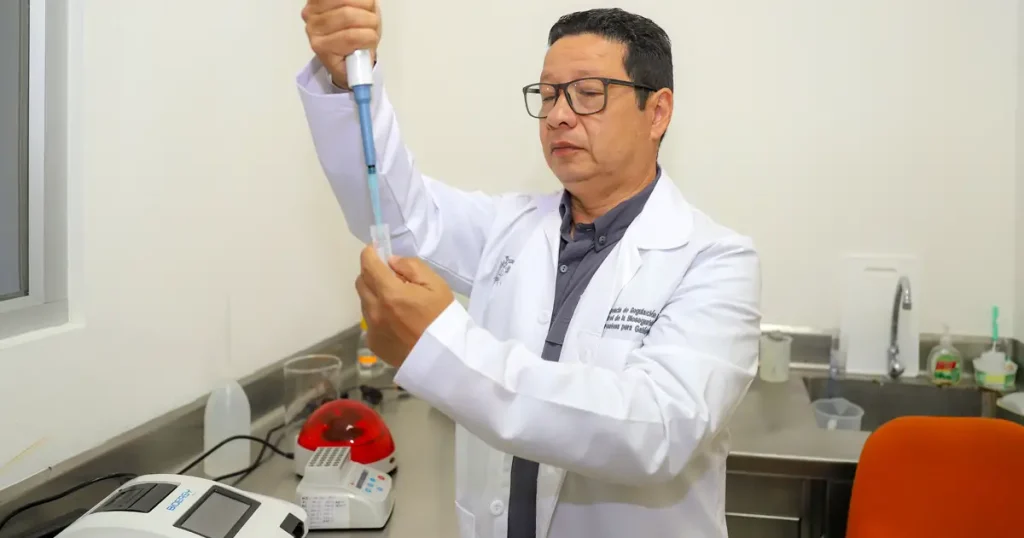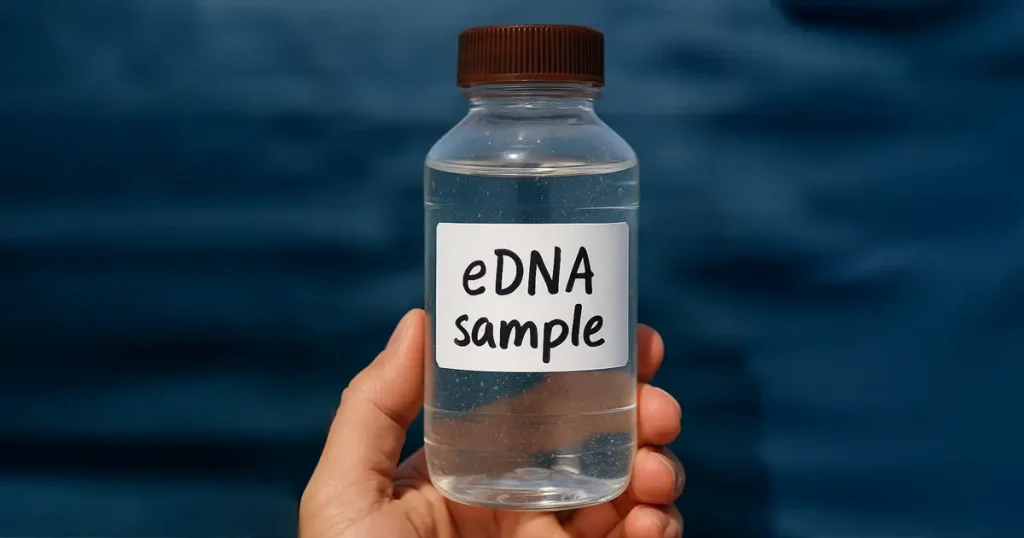Major Discovery Gives Hope for Saving the Critically Endangered Pink Iguana
Date: December 19, 2022.
Joint expeditions by the Galápagos National Park Directorate (GNPD) and Galápagos Conservancy as part of “Iniciativa Galápagos” have described the first-ever nesting area of the Pink Iguana and, nearby, photographed the first Pink Iguana hatchlings ever observed. Unfortunately, camera trap surveys of the nesting area reveal that non-native feral cats are heavily preying on young Pink Iguanas as they emerge from their underground nests. These descriptions represent a breakthrough in knowledge about the species and identify a path forward for conservation actions to save the Pink Iguana from the verge of extinction.
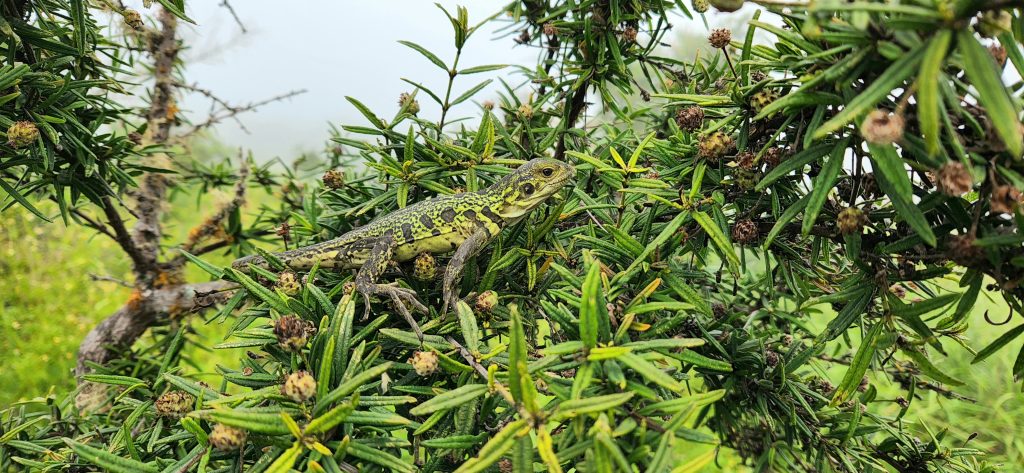
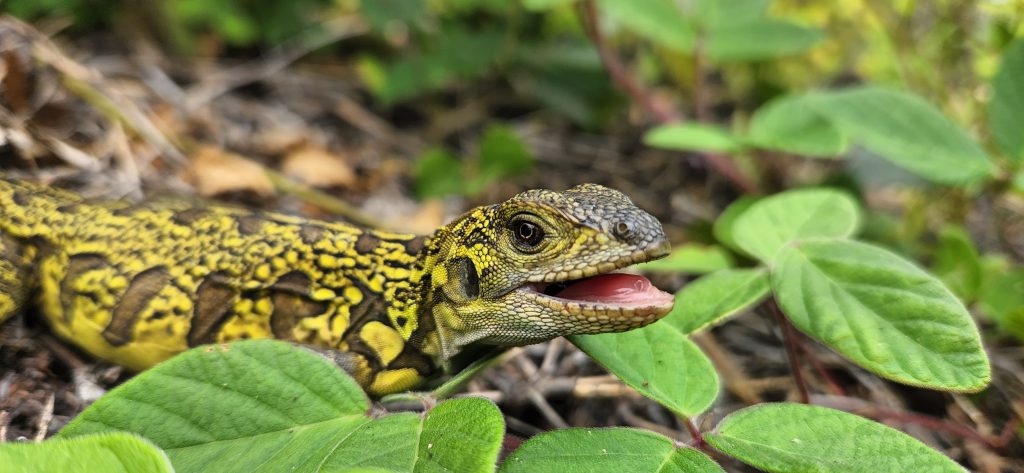
First-ever photos of juvenile Pink Iguanas showing characteristic striping © GNPD / Galápagos Conservancy
Over the past ten months, a team of the GNPD and Galápagos Conservancy, led by rangers Johanes Ramirez and Jean Pierre Cadena together with Mario Yépez and Adrián Cueva, members of the Galápagos Conservancy’s conservation team, have undertaken a series of expeditions to the remote Wolf Volcano on Isabela Island in search of the Pink Iguana.
It takes two days to hike the volcano and reach where the last surviving population of Pink Iguanas resides. Since its identification as a new species in 2009, the current global population is estimated from 200 to 300 adults, with no immature iguanas documented in over a decade. With a dwindling and aging adult population, there is global concern that the species is fast approaching extinction.
Since the October 2021 announcement of “Iniciativa Galápagos” between GNPD and Galápagos Conservancy to help save the Pink Iguana, seven expeditions have been undertaken to understand the current status and threats facing the species.
Recently the team discovered and documented the first nesting sites and the first ever hatchling and juvenile iguanas. Also dozens of hidden trail cameras deployed by the team around the volcano have now documented extensive evidence of nesting activities of Pink Iguanas.
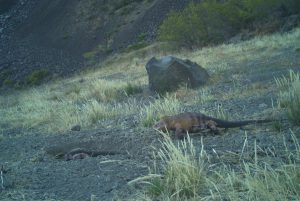
Of great concern is the documented predation of young iguanas whereby non-native feral cats are congregating at iguana nest sites and killing hatchlings at their most vulnerable moment. Having spent days digging out from their underground nests, the young iguanas emerge and are easy prey for the cats. It is suspected that cat predation has prevented juvenile recruitment of Pink Iguanas into the adult population for more than a decade.
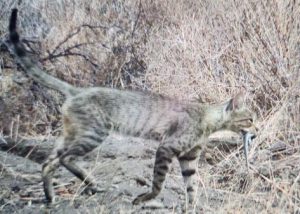
Iniciativa Galápagos is now urgently focused on providing further support for research, monitoring, and protection of Pink Iguana Nesting sites. To advance these efforts, the GNPD, with funding from the Galápagos Conservancy, has established a permanent field station with a 360-degree view of the volcano to help protect against illegal poaching and wildlife trafficking.
The Ecuadorian Minister of the Environment has praised this hard effort. “Excellent news for our country! Pink iguana hatchlings and juveniles were discovered for the first time after years of research. This is thanks to a collaboration between the GNPD and the Galápagos Conservancy. Congratulations to everyone who contributed to this discovery!“
Danny Rueda, director of the Galápagos National Park, thanked Galápagos Conservancy for its support and assured that “this remote base will facilitate conservation and monitoring work on the volcano, helping guarantee the conservation and restoration of the Pink Iguana population.”
“The discovery of the first ever nest and young Pink Iguanas together with evidence of the critical threats to their survival has also given us the first hope for saving this enigmatic species from extinction.” stated Dr. Paul Salaman, President of Galápagos Conservancy, “And we’re so proud of our partnership with the Galápagos National Park that has yet again resulted in a huge stride forward towards saving the precious and unique biodiversity of Galápagos. Now our work begins to save the Pink Iguana.”
